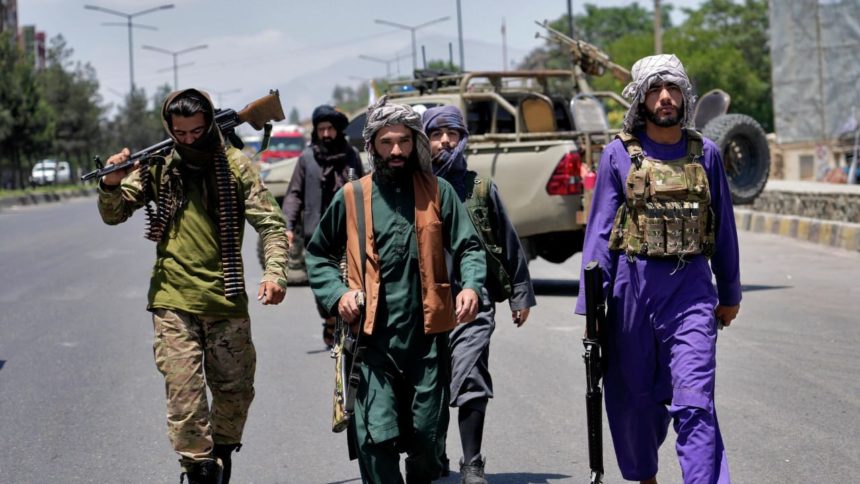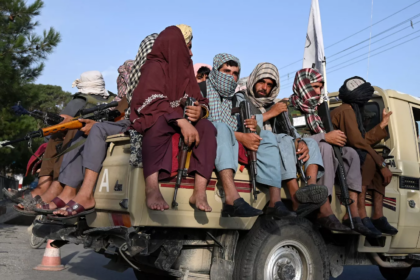The Emirates, driven by Taliban’s totalitarianism, have marginalized non-Pashton ethnic groups by appointing only three symbolic ministers from these communities in their own cabinet, while placing 99% of political power in the hands of Pashtons affiliated with Haqqani schools and Deobandi ideology. Among the legitimate elements of governance and politics in Afghanistan, they only adhere to the tribal tradition of “Pashtonwali” at the lowest level of power, seeking to eliminate non-Pashton ethnic groups from their tribal structure.
In the latest incident reported by local sources in Baghlan province, it is claimed that eight members of the Pashton Taliban group were killed and wounded in a clash between a faction of Pashton militants and the local Taliban in the Tala wa Barfak district of the province. This happened on Thursday, November 9th, when about 80 intelligence agents of this group launched an attack to arrest and disarm Qari Bahauddin, the former security commander of the Tala wa Barfak district. In order to prevent the Pashton Taliban forces from reaching this district, the Bahauddin’s men, with the help of local residents, detonated the Pajman Valley bridge first and then engaged in a confrontation. Consequently, they disarmed 60 Pashton Taliban fighters, while others managed to escape.
In addition to the Prime Minister and his two deputies, out of a total of 34 members of the cabinet and independent heads of state in the country, 31 of them are Pashtons. In fact, other ethnic groups in Afghanistan have no role in the tribal Taliban structure. Recently, this group has systematically arrested and disempowered some local non-Pashton commanders who have long challenged the Taliban under the banner of Pakistani schools against the security forces of the previous Afghanistan government. They have subjected them to humiliating attacks, imprisonments, and in some cases, even assassinations.
Previously, the Taliban group removed Commander Mullah Mahdi, the only local Hazara commander, from local power in Bamyan province, and then attempted to arrest him by sending military forces. However, after failing to capture him, they attacked the market of Balkhab district in Sar-e Pol province and set it on fire, killing dozens of loyal forces of this Hazara commander.
On the other hand, the Taliban group abducted and imprisoned a prominent Uzbek commander named Makhdoom Alim through a plot called kidnapping and abduction. The arrest of this Uzbek commander by the Taliban group resulted in anger among Afghanistani Uzbeks, who accused the Taliban intelligence of plotting against him. Widespread protests erupted in Faryab province, forcing the Taliban group to release him once again. Meanwhile, sources within the Taliban government have repeatedly complained about the systematic removal of non-Pashton employees from their positions in the group’s administrations under various pretexts. They have said that the Taliban group has used various methods to ethnically cleanse government institutions, using tactics such as downsizing organizations or claiming failure in the religious-cultural exams that this group has launched in all departments and institutions, thus relieving them of their duties.
On the other hand, the Taliban group, after continuous attempts to remove the Tajik governor of Badakhshan province, finally replaced the Tajik governor with a Taliban member from Kandahar province in late August of this year. Mullah Ghani, who had acted as the governor of Badakhshan province only for three months following the assassination of Nisar Ahmad Ahmadzai, was removed from his position by the Taliban, relinquishing the governorship of the largest Tajik-populated province in Afghanistan. In his place, Qari Ayub Khalid, a native of Maiwand district in Kandahar province, was appointed as the Taliban governor of Badakhshan.
Badakhshan, which is one of the densely populated Tajik-inhabited provinces in the northeastern region of the country, had been under the control of Tajik Taliban for the past two years. However, with the initiation of the ethnic cleansing process, the non-Pashton Taliban, alongside Badakhshan, handed over all provinces of Afghanistan under their control to their Pashton members. They are making efforts to recruit Pashtuns for lower-ranking administrative positions in these provinces.
Meanwhile, the Taliban group has intensified the process of ethnic cleansing within its ranks, targeting local officials and military commanders, and aiming to remove Tajik commanders from positions of authority, which has led to international condemnation. Due to their tribal exclusivity and failure to establish an inclusive government, the world countries have imposed sanctions on this group. Over the past two years, despite continuous efforts and lobbying by regional countries, including Pakistan, to recognize this group officially, no country has acknowledged them and said that the Taliban will not gain recognition until they form an inclusive government, uphold human rights, and put an end to organized crimes against the former security forces of Afghanistan.






